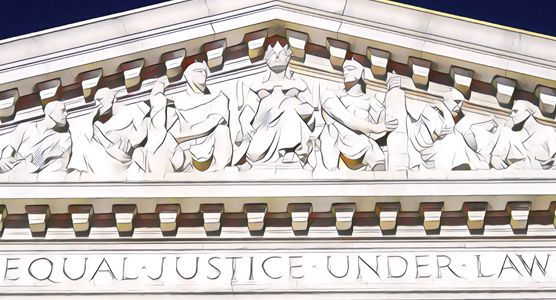U.S. Supreme Court to decide ministerial exception cases involving religious school teachers

The U.S. Supreme Court has accepted a pair of cases involving job discrimination claims under Title VII of the Civil Rights Act brought by teachers at religious schools. The Court has previously recognized an exception to Title VII claims that allows religious institutions to select their own ministers without regulation or interference from government. The “ministerial exception,” the Court ruled in a 2012 case, Hosanna-Tabor Evangelical Lutheran Church and School v. EEOC, is necessary to prevent courts from meddling in questions of religious doctrine.
But who counts as a minister? That is one of the questions raised by these two cases, which the New York Times describes:
The new cases concern teachers without formal training or titles but who taught Catholic doctrine and other subjects. One of them, Kristen Biel, sued under the Americans With Disabilities Act after she was diagnosed with breast cancer and her contract was not renewed. The other, Agnes Morrissey-Berru, sued for age discrimination after her own contract was not renewed.
In both cases (Biel v. St. James School and Our Lady of Guadalupe School v. Morrissey-Berru), the 9th U.S. Circuit Court of Appeals ruled against the schools and held that the ministerial exception did not apply because the job titles and credentials of the teachers, and the way they held themselves out to others, did not suggest that their positions were ministerial, even though they performed some religious functions.
In a brief filed with the Supreme Court urging the justices to take up the case, law professor Douglas Laycock argued that the 9th Circuit’s “focusing narrowly on the label of the ‘ministerial’ exception is a mistake.” He writes:
This Court should re-affirm that the exception “protects more than just ‘ministers,’” and that it applies to all those with significant religious responsibilities. . . .
…
[C]ourts should focus on the function performed by persons who work for religious bodies.” Thus, the exception “should apply to any ‘employee’ who leads a religious organization, conducts worship services or important religious ceremonies or rituals, or serves as a messenger or teacher of its faith.” (citations removed)
The Court has not yet scheduled oral argument. A decision in the consolidated cases is expected by the end of June 2020.
For more on the ministerial exception, see the Hosanna-Tabor resource page provided by BJC.




